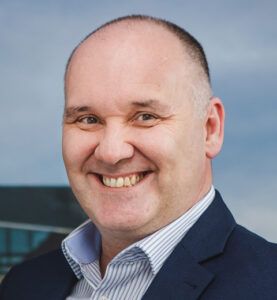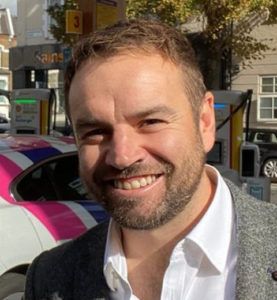Report highlights critical role of electricity networks in bolstering Britain’s energy security
The UK’s Electricity Networks Commissioner, Nick Winser, has published his independent report setting out recommendations to halve the total development time for transmission infrastructure.
The report sets out plans to bolster the country’s energy security and ensure the UK is taking full advantage of its position as a leader in renewables. It suggests that new power lines can be built in half the time and confirms that, while challenging, speeding up the delivery of strategic electricity transmission lines is “vital and achievable”.
A set of recommendations has been put forward to reduce current timescales for delivering onshore transmission network infrastructure to seven years to help deliver energy security and Net Zero more quickly. The Government will respond to these proposals later this year.
Since 2010, the UK has been successful in increasing investment in renewable energy generation by 500%. To ensure the country is taking full advantage, remains equipped to harness the opportunities of renewable energy, and gets the additional supply of clean power to homes and businesses, the government asked Nick Winser to carry out his review.
Energy Security Secretary Grant Shapps has welcomed the report and will consider the recommendations before presenting an action plan later this year to strengthen the UK’s energy security, drive down household bills and grow the economy.
He said: ”“The UK is leading the world on renewable energy and decarbonising faster than any other country in the G7. We must ensure we are taking full advantage of our success and getting the increased supply of homegrown, clean energy that we have at our fingertips to people’s homes and businesses for years to come.
“That is why we asked Nick Winser to carry out this review – I welcome his report and am grateful for his work. This is another important step as we continue to reform our energy system to drive down bills, grow the economy and ensure tyrants like Putin can never again use energy as a weapon of war.”
Lawrence Slade, Chief Executive of Energy Networks Association, which represents the UK’s energy network operators welcomed the report, saying: “This major intervention from the networks commissioner provides a welcome focus on the changes needed to our regulatory regime and the planning processes which govern essential infrastructure developments.
“We welcome the opportunity to continue to work with the Commissioner and the Government to take these recommendations forward at pace.”The proposed reforms will create a strong and strategic framework which looks at the whole energy system and takes a long-term view. This will help developers, planners, communities and customers and is essential if we are to meet the government’s 2050 net zero goal.”
Nick’s report includes proposals to government on streamlining the consenting process for major schemes, and for a more strategic approach to planning the future of networks spatially.
Responding to the report, Sir John Armitt, Chair of the National Infrastructure Commission, said: “We need transformational change in our electricity network to support the government’s ambitious offshore wind plans and to support decarbonised heating and electric vehicles.
“But we cannot deliver that change at current speeds of delivery. Nick Winser’s report is an authoritative prescription for addressing this. Government and Ofgem must continue their work to drive anticipatory investment and embed a more strategic and spatial approach to planning electricity networks.
“We particularly welcome the recognition of the vital role of the independent system operator in providing a single version of the truth on network capacity, as well as the endorsement of the Commission’s recent recommendations on regular updates to National Policy Statements.
“We look forward to government and Ofgem’s upcoming connections action plan, building on this important work. The Commission will also make recommendations on further actions to enable the necessary investment in electricity networks in the upcoming second National Infrastructure Assessment.”
The Commission’s own recommendations on speeding up the consenting process for nationally significant infrastructure projects, referenced by Sir John and published in April 2023, called for National Policy Statements to be updated every five years as a legal requirement and clearer direct benefits for communities which host key infrastructure schemes. Government is currently considering its formal response to the Commission’s proposals.
Minister for Networks and Nuclear Andrew Bowie, said: “With renewable energy already making up around 40% of our total electricity supply, the UK has a world-class renewables sector. We are determined to match this with a world-class system for delivering this growing supply to where it is needed.
“We will be considering Nick Winser’s recommendations closely as we work towards achieving an energy system led by renewables, nuclear and other clean, home-grown technologies.”
Carl Trowell, President, UK Strategic Infrastructure at National Grid, said: “This report from the Electricity Networks Commissioner is both timely and welcome, following our recent launch of The Great Grid Upgrade, the largest overhaul of the electricity transmission grid in generations, with significant new infrastructure planned across England and Wales.
“There is no time to waste, implementing the proposals and progressing the energy transition at pace is the surest route to more affordable bills, greater energy resilience and a more energy independent UK.”
Rebecca Barnett, Ofgem’s Director of Networks said: “We need bold reforms to accelerate the delivery of electricity transmission infrastructure needed to end the reliance on fossil fuels for power by 2035.
“Nick Winser sets out an ambitious, highly detailed programme to remove barriers to planning and delivering transmission network and plugging renewable generation into the grid.
“This builds on Ofgem’s work to establish strategic national and regional planning; unlock and accelerate infrastructure investment; and end delays in grid connections to homes, businesses and public services.”
Image courtesy of Shutterstock.





































































































